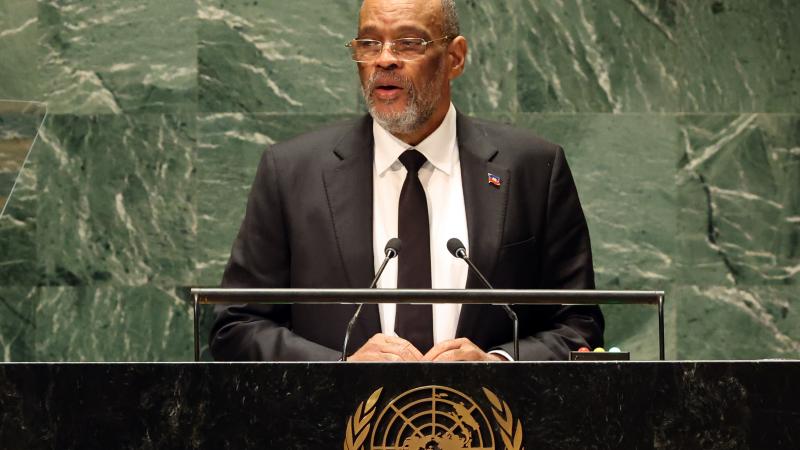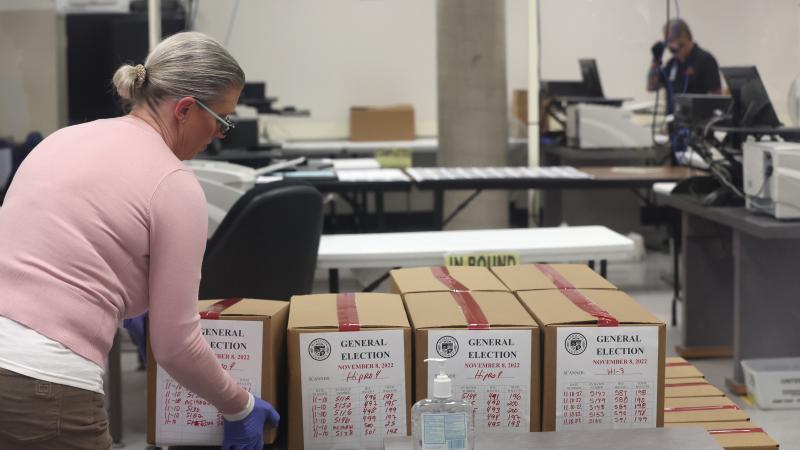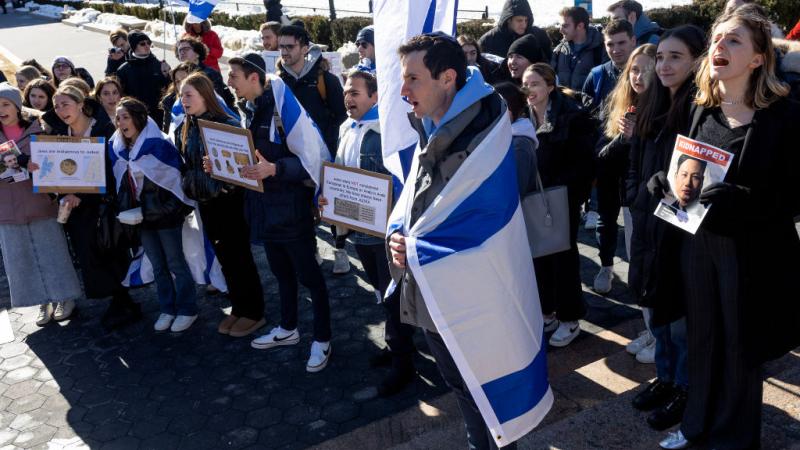Leaked documents show Iran plotting to Increase attacks against U.S. troops in Syria
The classified documents revealed wide-ranging campaigns by Tehran and Moscow including support for armed resistance to attack American troops.
U.S. intelligence officials say in recently leaked documents that the Islamic Republic of Iran is arming militants in Syria for a new phase of deadly attacks against American troops while working with Russia to drive U.S. influence from the region.
According to the classified intelligence reports revealed Thursday, Tehran and its regional allies are creating and training forces to use armor-piercing roadside bombs to target American military vehicles and kill U.S. personnel.
Officials say such planned attacks are in fact part of Tehran’s long-running campaign of using proxy militias to launch rocket and drone strikes on U.S. forces in Syria.
However, information from another classified intelligence document shows new efforts by Moscow, Damascus and Tehran to push the U.S. from Syria, allowing Syrian President Bashar al-Assad to reconquer eastern Syrian provinces now controlled by U.S.-backed Kurdish forces.
“Iran has been waging a shadow war against the United States since the Iranian Revolution of 1979, aimed at kicking the U.S. out of the Middle East, diminishing America’s power and reach by either subordinating or reducing rival local powers and augmenting their own power by aligning closely with China and Russia, America’s two principal rivals on the world stage," said Brandon Weichert, author of the forthcoming book "The Shadow War; Iran’s Quest for Supremacy" and senior editor of 19FortyFive.com.
The documents were first leaked at the social media platform Discord and then made public by news organizations.
In late January, Islamic Republic officials directed and oversaw the development of a new military explosive that penetrated a tank’s armored plating in an experiment run in Ad Dumayr, a city near the Syrian capital of Damascus.
The classified reports revealed communications by Syrian and Lebanese militia groups affiliated with Tehran to use such weaponry against American forces. Last February, U.S.-backed Kurdish fighters seized three bombs in the northeastern province of Syria aimed at American soldiers.
Weichert says Iran cannot match the U.S. military in a conventional battle so has instead embraced "asymmetrical warfare" and used terror tactics to kill Americans in Syria – along with deploying drones and precision-guided munitions to Lebanon and, until recently, Yemen.
He also said such attacks are designed to "weaken and push out the Americans to give Iran the kind of space it needs to build its own sphere of influence in the region."
The classified documents revealed wide-ranging campaigns by Tehran and Moscow. including support for armed resistance and grass-roots movements to attack American troops in eastern and northeastern Syria.
Intelligence officials also say senior-ranking Russian, Iranian and Syrian military and intelligence officials met in November 2022 and agreed to establish a “coordination center” for directing the campaign.
While the classified documents did not indicate direct Russian involvement in planning the bombing campaign against American soldiers, they showed a more active role by Russia in a broader anti-American effort.
"They’ve been at this plan for decades and it is now working. Expect more of this," Weichert said.
"If the Biden administration foolishly embraces the nuclear deal with Iran that former President Barack Obama created in 2015 and that his successor, Donald J. Trump, smartly pulled out of, then Biden will basically be giving Iran the green light to take the region and develop sophisticated nuclear weapons with which to reinforce their claims of the supremacy of the Middle East."
Another leaked document described efforts in January by a bomb maker with the Iranian-backed Lebanese Shiite terrorist group Hezbollah to conduct and assess a new type of warhead in Syria known as an Explosively Formed Penetrator.
Following several tests, the bomb’s projectile destroyed roughly 3-inch-thick tank armor at a 75 foot range, according to the classified report.
Following the Syrian uprising in 2011, the Islamic Republic of Iran and Russia came to the Assad government’s rescue, deploying Russian soldiers and IRGC troops to aid the Syrian army in their repression of Syrians who were calling for the resignation of the Assad regime and a new Syrian government that would respect the rights of all citizens.
“The Middle East is no longer America’s most important zone of strategic interest," Weichert said. "Yet, simply walking away from the region and leaving it to a nuclear-arming Iran, and therefore Iranian partners in Beijing and Moscow, is the best way to ensure the U.S. is fundamentally – forever, even – weakened on the world stage."
Since the Obama presidency, the U.S. has maintained a small contingent of 900 troops and several hundred contractors in Syria to prevent the reappearance of Islamic State and Al Qaeda militants.
Over the years, the U.S. has also thwarted Tehran and Moscow’s military ambitions in the region, targeting Iranian-backed proxy groups and engaging in intelligence operations to assist allies including Israel and Saudi Arabia.
Despite American forces in Syria, Russia and Iran continue to engage in illegal arms smuggling and terrorist financing, resulting in the deaths and injuries of American troops in the region and U.S.-backed Kurdish fighters.
As a result of the support Damascus has received from Tehran, Israel has launched various aerial attacks against Iranian forces in Syria, destroying arms shipments and top-level IRGC commanders who have been active in targeting Israeli and American troops in the Middle East.
Weichert and other such experts argue the Middle East is and always has been the “crossroads of civilization” and a “key component of the global energy trade. They also say America’s outsized role there has helped Washington "have greater leverage over the rest of the world" and that "nothing good" will come of the U.S. departing.
















